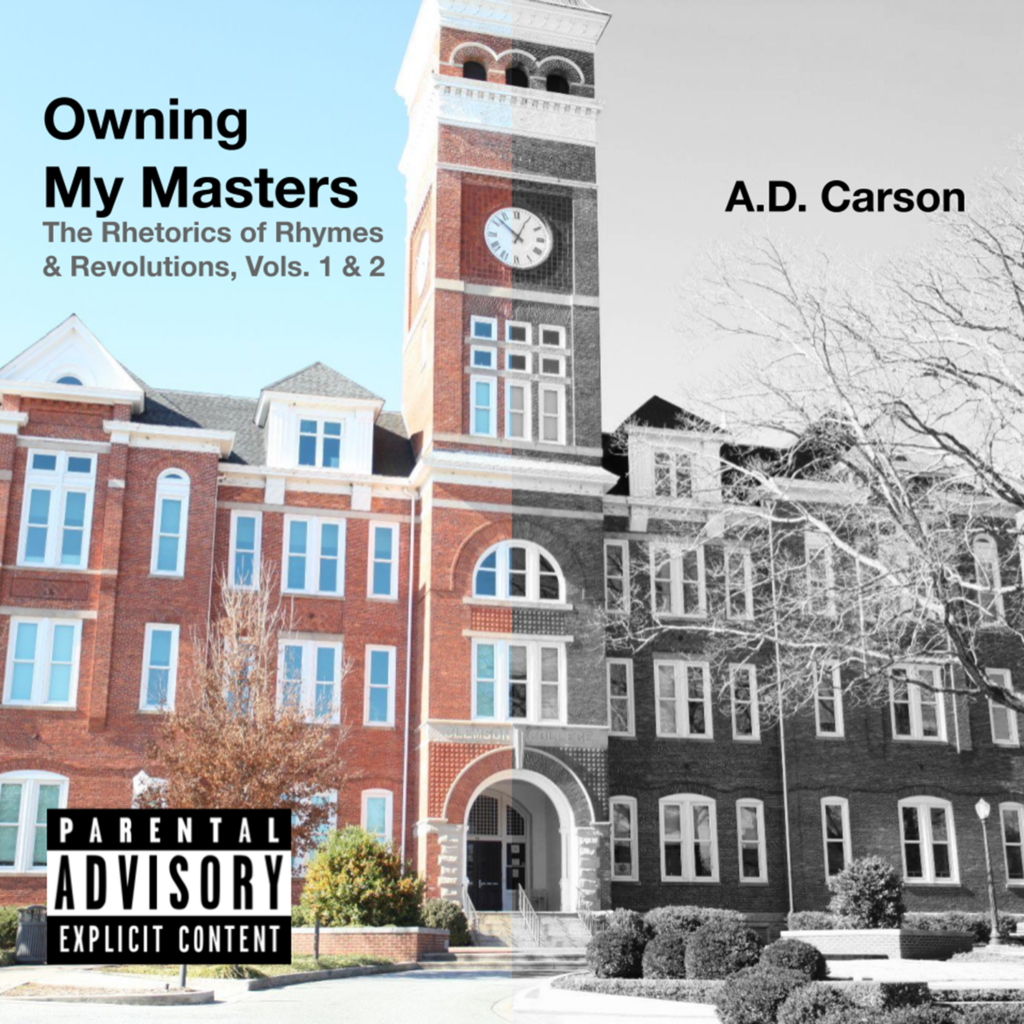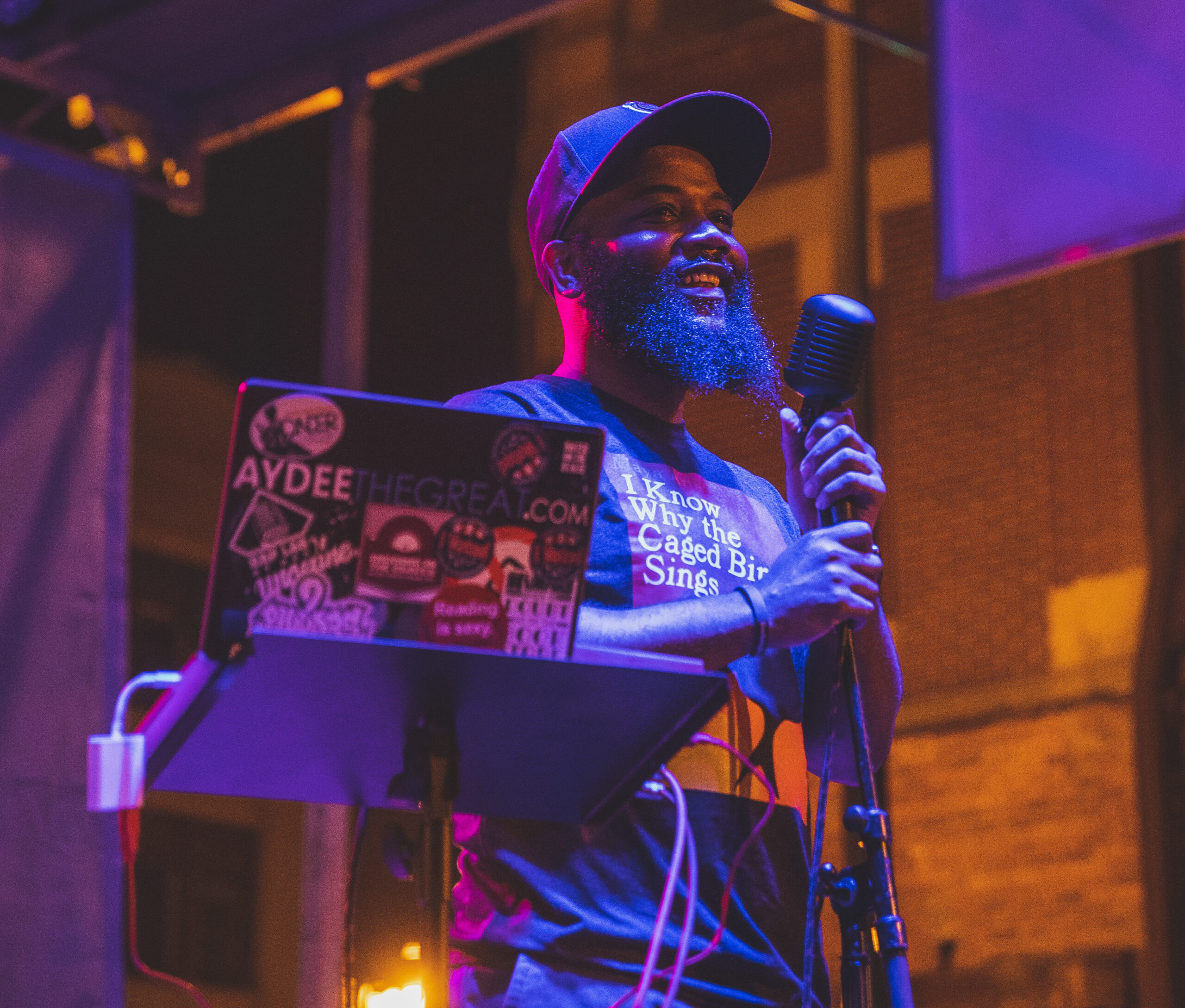Clemson University was proud of its doctoral student. It was 2017, and the university announced the achievement with fanfare: A.D. Carson had produced an original piece of music as his dissertation and successfully defended it to receive a Ph.D.
Carson went on to receive tenure in the University of Virginia’s music department. At UVA, he’s continued to compose original music, do research, and teach students to write music.
None of that is incredibly unique. It’s a well-worn path for classically trained musicians. But Carson’s case stands out for two reasons: One, his doctorate is not in music—it’s in rhetorics, communication, and information Design. Two, the music Carson makes is hip-hop.
“I’m honestly quite surprised I was hired in a music department and even more so that my appointment is in hip-hop given the nonexistent relationship it seems music in academia has had to the culture,” Carson says. “It took convincing for me to apply for the job when it was posted.”
Late last year, 11 years after he began working on the album that earned him his doctorate and then tenure, Carson’s Owning My Masters (Mastered) was peer reviewed and published by the University of Michigan Press as an open access document.

To Carson’s knowledge (which, when it comes to hip-hop, is vast) he’s the only university professor ever to earn tenure for publishing rap music. In addition to Owning My Masters, he’s produced three other albums, including i used to love to dream, the first hip-hop album ever peer reviewed and published by an academic press.
So, how did Carson fulfill the requirements for a communications Ph.D. by writing raps? His academic background is in English, writing, and literature, meaning his work is “not so much about hip-hop as it is through hip-hop.” Carson’s albums, showing off a Jay-Z-meets-Nas-type flow and crisp production, include numerous tracks that sound like they’d be at home on a major label’s offering. But as a lyricist, he takes on the heaviest topics: how the past shapes societies and individuals, racial inequality, inherent justice system biases, and historical whitewashing.
Owning My Masters also features Carson’s spoken word poetry, poignant clips from media outlets during historical events, carefully curated sampling, and repurposed film audio. The result is a collection of statements more so than songs.
“All raps are making arguments—even the ones that we think are bad raps,” Carson says. “They are making appeals.”
Carson began writing Owning My Masters as a graduate student at Clemson. He had come to the campus to study literature, but as he pursued hip-hop outside the classroom, he realized he was doing the same work in both places. He began to integrate them, finding Sophocles in Jay-Z’s “Meet the Parents,” imagining Kanye as a modern day Jay Gatsby.
A Black man from the Midwest, Carson was immediately shaken by the way Clemson dealt with the past when he arrived in the South. The school mostly ignored its history of slave ownership, he thought. Then, in early April 2016, a group of students hung racist iconography on an African American history banner outside the former home of Clemson founder John C. Calhoun. Carson was among a group of five students arrested for protesting the vandalism. Local media outlets labeled them “the Clemson Five.”
The incident fueled Carson, and Owning My Masters is suffused with the specific racial tension surrounding Clemson in those days. On the spoken word poem “See the Stripes,” he says: “It’s a pretty well-known fact that tigers have stripes, and almost as well-known is the reason they do, yet, Clemson University—home of the Tigers—doesn’t do much acknowledging of those dark marks it knows to be so integral a part of its existence.”
After defending his dissertation in the spring of 2017, Carson was hired as an assistant professor of hip-hop in UVA’s McIntire Department of Music. He arrived in Charlottesville during its own racial reckoning. The location was different, he says, but the equality issues were the same.
When Carson submitted his tenure packet, i used to love to dream had already been published, but Owning My Masters remained unmastered. Carson applied for a grant to polish the album for release. He won the grant and worked with local engineer Michael Moxham to finish the decade-long project.
Carson’s love of hip-hop ranges from Lauryn Hill and Andre 3000, to more obscure artists like Phonte and 7xvethegenius. He doesn’t believe there is “some-hip hop that is more literary and some that is less literary,” but he does worry about corporate interests and nameless algorithms influencing the music people listen to. “The cultural inheritance that hip-hop has left—it has been looted by companies,” he says. “Us rappers are fighting for scraps … and so getting a Ph.D. puts me in a position to have something to say about it.”






